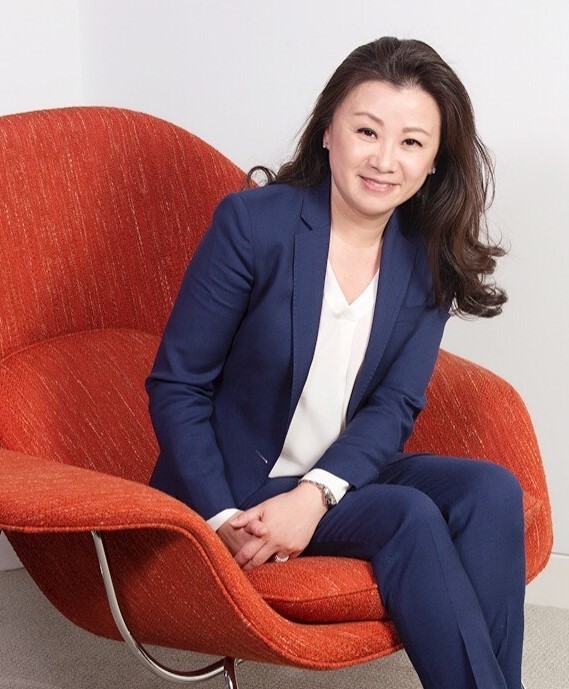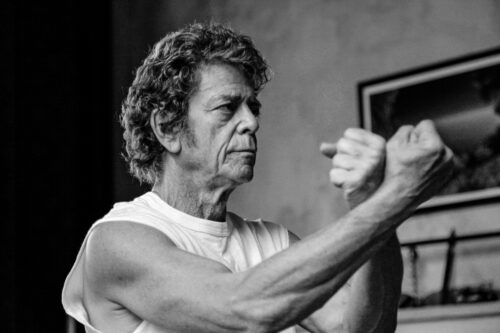‘Financial services is a people business’: Q&A with Wendy Cai-Lee, partner at Oenus Capital

As a partner at Oenus Capital, a real estate debt-and-equity fund that provides tailored investment solutions, Wendy Cai-Lee is a rare elite female banker who took the leap and started her own firm. She had been the executive vice president at East West Bank and co-founded a point of sales (POS) software company. She was also the driving force behind raising multimillion-dollar venture investments in the U.S. and Greater China.
Cai-Lee will appear at our second annual The China Project Women’s Conference: How Women Are Shaping the Rising Global Power as the moderator of the finance panel, joined by speakers such as Debra Lodge, managing director of HSBC, and Mei-Mei Tuan, CEO of Notch Partners.
Before the conference, Cai-Lee talked to The China Project about her experience of dealing with Chinese investors and shared her advice for aspiring female leaders.
The China Project: China has been reportedly tightening its control over cross-border capital flows. What impact did the policy have on Chinese investment in the U.S.? Has the momentum of Chinese investment been significantly curbed? If so, how soon will it pick up again in your opinion?
Cai-Lee: From a number standpoint, we’ve seen a meaningful decline of Chinese investment in the U.S. since 2016. The impact of the cross-border capital control tightening has been very real. However, the decline of Chinese investment in the U.S. is the result of several factors, including an increasingly complex political environment between the two countries. The Committee on Foreign Investment in the United States (CFIUS) has tightened its scrutiny over Chinese acquisition in the U.S. and is making it more difficult for Chinese companies to acquire U.S. assets under the Trump administration.
The landscape of Chinese investment in the U.S. has shifted dramatically. Industries such as real estate, entertainment, and consumer products, which used to be popular among the Chinese investors, are now discouraged by China’s new outbound investment rules. Meanwhile, the highly encouraged sectors such as high-tech are facing added scrutiny by CFIUS for the reason of national security. While Chinese investors’ interests in investment opportunities in the U.S. remain, it certainly has been challenging for them to navigate through the policy and politics on both sides, and hard to predict when the situation will improve.
Even though it has been tough to get more deals done, there are some positive impacts such as providing a level of filtering to weed out the less serious and committed investors. It urges the investors to rethink the strategic values of their investment in the U.S. The cost of time and efforts to go through the cross-border transaction has increased, and therefore, you have to be a serious investor and believe the acquisition will create synergies and strategic values for your company in order to pursue a deal.
The China Project: You have dealt with a number of Chinese clients throughout your career. Based on your observation, did you notice any difference in terms of investment preference or practice between investors from the U.S. and China? What are some conclusions you can draw from your “China experience?”
Cai-Lee: It is hard to compare the investors from the U.S. and China for a number of reasons. First and foremost, U.S. investors started investing in China several decades ago, and the volume of U.S. investment in China is much more significant than Chinese investment in the U.S. When I started doing cross-border transactions between China and the U.S. with Deloitte’s Chinese Services Group, I was making frequent trips to China and helping U.S. companies enter the China market. It was not until 10 years ago that more meaningful Chinese investment made its way into the U.S. With that said, the experience and sophistication levels with oversea investments vary greatly. The motivations behind the investors also differ. Many Chinese investors seek investment in the U.S. for risk diversification purpose, for the technology know-how, especially intangible assets that can help enhance their ability to increase their market share within the domestic market in China. Meanwhile, U.S. firms are mostly vying for a slice of the vast consumer market in China or leveraging both skilled and non-skilled workforce to improve overall profitability.
I think the Chinese investors have become more strategic with their overseas expansion, with an eye to a longer-term return. They are very quick to learn from mistakes and become more selective with their investment. This also provides great opportunities for the professional services firms who serve the Chinese investors.
In the end, healthy, sustainable, and mutually beneficial trade activity will benefit both countries as well as the global economy, since so many countries’ economic well-being is so closely tied, and so dependent on the U.S. and China.
The China Project: You are on the Board of Trustees of Friends of UNFPA (the United Nations Population Fund), a member of the Rutgers University Board of Overseers, chair of the Dean’s Advisory Board at Douglass College, and a Board Trustee and member of the Corporate Council at Asia Society Texas Center. How does your engagement in nonprofit organizations influence your life and career?
Cai-Lee: Most of the nonprofit organizations that I’ve been engaged with and supported have a mission of supporting women and children. I think this probably started with my undergraduate studies at Douglass College, which is the country’s largest women’s college and has a tremendous support system for young women. I believe in the value of building a support network for women, as it is critical for fostering a positive platform that allows long-term personal and professional growth. I’ve met incredible people through my participation in the nonprofits — many helped shape my career and helped me become the person who I am today. It is not only a wonderful way to meet people from all walks of life, build a personal network, and find support both personally and professionally, it is also a much-needed balance to my demanding banking career. It provides me with a more balanced view of issues and challenges that I face and helps me be a better problem solver. Especially with UNFPA, it brings a global view that my daily work and home life lack, and the people UNFPA’s program supports, their life story, and the adversity they face humble me and allow me to view life from an entirely different perspective. In turn, I believe it makes me a better mother, wife, friend, leader, and colleague.
The China Project: What are some challenges facing executives in big financial firms? As a female leader, have you encountered any specific obstacles and how did you overcome them?
Cai-Lee: Challenges facing executives in the financial services firms are not that different from other institutions; it is always about people. My personal view is that regardless of the industry sector, people (as in talent management) is always the most critical component to the success of an institution. I often tell my colleagues, investors, and anyone who is willing to listen that we are in the “people business.” And the most challenging part of being an executive is ensuring the institution has the right talent for the right business model at the right time.
There are many challenges faced by female leaders that are not much different from those faced by male executives. That said, the two most often discussed and debated topics are equality in pay and career advancement. I think an improvement is needed, but it does take time. One way to help improve these issues is to have fair, equitable performance assessment metrics that are truly gender neutral. I have been working with our HR director to come up with consistent equitable metrics to evaluate associates regardless of gender, starting with how we recruit, how we conduct onboarding, and career advancement. In addition, to have a personal leave policy that allows the flexibility of taking time for personal and family needs without being penalized or the perception of being penalized at work. This is beneficial to our employees and also allows the firm to have a more engaged, focused, and happier workforce that has lower turnover.
The China Project: Do you have any advice for aspiring female leaders?
Cai-Lee: Whenever I’m asked to give advice or an opinion on this subject, my advice is:
- Focus on things that are within your control.
- Speak up (constructively and in a timely manner) — your manager and colleagues are not telepathic, so unless you speak up and be your own champion, no one else will, nor should you expect others to speak up on your behalf.
- Contribute, add value. If you want to be a leader, you need people to follow you. Lead by example, be valuable to others. If you offer no value-add (regardless of up, down, and lateral relationships), it will be very difficult to gather a “fan club” or followers. A true leader has willing followers, otherwise, you are just a manager at best or a gatekeeper.
- Be ready to make tough decisions. Leadership is not a popularity contest.
- Have good self-awareness.
- Talk less and listen more.
Catch Wendy Cai-Lee on Monday, May 14, at the Harvard Club of New York during the second annual The China Project Women’s Conference.





